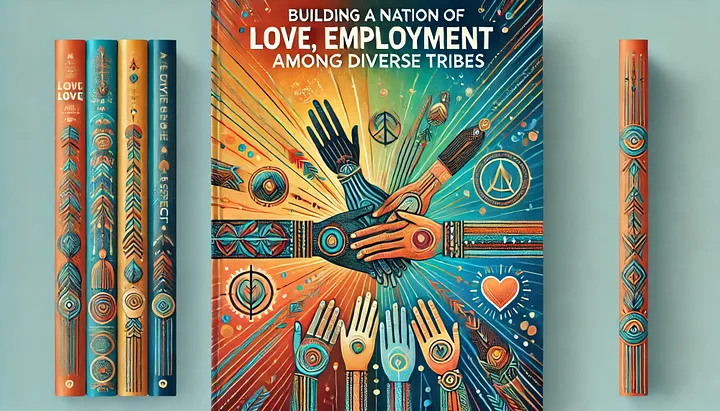United We Thrive: Building a Nation Rooted in Love, Opportunity, and Respect for All Tribes
In today’s rapidly globalizing world, fostering unity among diverse communities is more important than ever. Building a nation rooted in love, employment, and respect across diverse tribes doesn’t just lead to societal harmony—it lays the foundation for economic prosperity, social stability, and cultural enrichment. By focusing on inclusive employment opportunities, mutual respect, and a sense of belonging, we can strengthen bonds across communities and cultivate a truly inclusive and resilient nation.

1. Fostering Love Among Diverse Tribes
Love is the cornerstone of any cohesive society. When individuals from various tribes feel loved and accepted, they’re more likely to embrace their unique identities while contributing to a shared national identity. Building love among diverse tribes involves both institutional and personal efforts.
- Cultural Exchange Programs: Initiatives like intertribal festivals, cultural weeks, and language exchange programs can foster understanding and appreciation. When people experience the beauty of another culture, they’re more likely to appreciate it.
- Educational Initiatives: Schools can emphasize cross-cultural understanding, teaching the youth about diverse customs, beliefs, and histories, which fosters respect from a young age.
- Community Events: Local governments and organizations can arrange celebrations like “Unity Day” or “National Heritage Month” to encourage cultural exchange and unity.
2. Creating Equal Employment Opportunities
Employment is a powerful equalizer. When everyone has equal access to work opportunities, it reduces socioeconomic gaps, builds trust, and promotes shared goals. To build a unified nation, it’s essential to ensure all groups feel valued and represented in the workforce.
- Inclusive Hiring Practices: Encourage diversity in hiring by promoting practices that prevent discrimination. When companies hire from diverse backgrounds, it creates a more innovative and resilient workforce.
- Skills Development Programs: Offering training programs in underserved communities helps prepare people for a range of jobs and ensures they can compete equally in the job market.
- Promote Entrepreneurship: Government grants and programs that support small businesses can empower individuals from various tribes to contribute to the economy, create job opportunities, and improve their community.

3. Cultivating Mutual Respect
Respect is the glue that binds society together. Without it, even well-intentioned initiatives can falter. True respect goes beyond tolerance; it’s about embracing differences and finding value in diversity.
- Education and Awareness Campaigns: Programs and campaigns that educate people about cultural differences promote understanding and prevent conflicts. Awareness is often the first step in reducing stereotypes and biases.
- Inclusive Policies and Laws: Governments should implement policies that protect the rights of all tribes and promote equality. This includes anti-discrimination laws, as well as protections for cultural expressions and practices.
- Community Dialogue Initiatives: Regular forums or “community dialogues” where people can express concerns and perspectives help reduce misunderstandings and build mutual trust.
4. Combining Efforts for Lasting Change
Building a nation of love, employment, and respect is a combined effort that requires everyone’s involvement. From the government’s role in policy-making to community leaders advocating for unity, and individuals practicing tolerance and respect, every effort counts.
- Role of Media: Positive representation in the media can break down stereotypes and foster unity. Encouraging media outlets to cover success stories and achievements from diverse communities promotes respect and a sense of pride.
- Leadership Programs: Mentorship and leadership programs can empower individuals from various tribes to take on roles that affect national and community policies.
- Celebrating Common Goals: Promoting a collective identity, such as focusing on national achievements and shared values, strengthens bonds across tribes.
Conclusion: Building the Future Together
Building a nation rooted in love, employment, and respect is an ongoing journey. While challenges remain, each positive step toward unity is a victory for everyone. A nation that respects its diverse tribes, supports them through equitable employment, and fosters love will stand as an example of strength, resilience, and harmony. Through these shared efforts, we create not only a more inclusive present but a promising, united future for generations to come.














